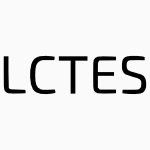Tag #stack
110 papers:
 ECIR-p2-2019-MoraesH #named #tool support #web
ECIR-p2-2019-MoraesH #named #tool support #web- node-indri: Moving the Indri Toolkit to the Modern Web Stack (FM, CH), pp. 241–245.
 OOPSLA-2019-BastianKN #performance #reliability
OOPSLA-2019-BastianKN #performance #reliability- Reliable and fast DWARF-based stack unwinding (TB, SK, FZN), p. 24.
 POPL-2019-SkorstengaardDB #control flow #encapsulation #linear #named #using
POPL-2019-SkorstengaardDB #control flow #encapsulation #linear #named #using- StkTokens: enforcing well-bracketed control flow and stack encapsulation using linear capabilities (LS, DD, LB), p. 28.
 POPL-2019-WangWS #approach #compilation #composition
POPL-2019-WangWS #approach #compilation #composition- An abstract stack based approach to verified compositional compilation to machine code (YW, PW, ZS), p. 30.
- ICSE-2019-WangWWLTZYC #dependence #question
- Could I have a stack trace to examine the dependency conflict issue? (YW, MW, RW, ZL, SHT, ZZ0, HY, SCC), pp. 572–583.
 ASPLOS-2019-JiZXLWHZX #architecture #configuration management #named
ASPLOS-2019-JiZXLWHZX #architecture #configuration management #named- FPSA: A Full System Stack Solution for Reconfigurable ReRAM-based NN Accelerator Architecture (YJ0, YZ, XX, SL, PW0, XH0, YZ, YX0), pp. 733–747.
 CGO-2019-AgaA #layout #named #runtime
CGO-2019-AgaA #layout #named #runtime- Smokestack: Thwarting DOP Attacks with Runtime Stack Layout Randomization (MTA, TMA), pp. 26–36.
 SANER-2018-PelloniGCPPG #named #overview
SANER-2018-PelloniGCPPG #named #overview- BECLoMA: Augmenting stack traces with user review information (LP, GG, AC, SP, FP, HCG), pp. 522–526.
 DLT-2018-IbarraM #automaton
DLT-2018-IbarraM #automaton- Generalizations of Checking Stack Automata: Characterizations and Hierarchies (OHI, IM), pp. 416–428.
- ICSE-2018-WangCH #comprehension #empirical #performance
- Understanding the factors for fast answers in technical Q&A websites: an empirical study of four stack exchange websites (SW0, THC, AEH), p. 884.
 ESOP-2018-SkorstengaardDB #pointer #reasoning
ESOP-2018-SkorstengaardDB #pointer #reasoning- Reasoning About a Machine with Local Capabilities - Provably Safe Stack and Return Pointer Management (LS, DD, LB), pp. 475–501.
 CAV-2018-ChenHSWWY #android
CAV-2018-ChenHSWWY #android- Android Stack Machine (TC, JH, FS, GW, ZW, JY), pp. 487–504.
 DLT-2017-IbarraM #automaton #decidability
DLT-2017-IbarraM #automaton #decidability- Variations of Checking Stack Automata: Obtaining Unexpected Decidability Properties (OHI, IM), pp. 235–246.
 CIAA-2016-BenschBK #transducer
CIAA-2016-BenschBK #transducer- Deterministic Stack Transducers (SB, JB, MK), pp. 27–38.
 ICPR-2016-GuanCSRR #image #multimodal
ICPR-2016-GuanCSRR #image #multimodal- Image stack surface area minimization for groupwise and multimodal affine registration (BHG, JC, MS, SR, AR0), pp. 4196–4201.
 SEKE-2015-PereiraRA #data access #database #distributed
SEKE-2015-PereiraRA #data access #database #distributed- Secure, Dynamic and Distributed Access Control Stack for Database Applications (ÓMP, DDR, RLA), pp. 364–369.
 ECOOP-2015-Summers #verification
ECOOP-2015-Summers #verification- Software Verification “Across the Stack” (AJS), p. 3.
 PLDI-2015-FaddegonC #algorithm #debugging #dependence #haskell #source code
PLDI-2015-FaddegonC #algorithm #debugging #dependence #haskell #source code- Algorithmic debugging of real-world haskell programs: deriving dependencies from the cost centre stack (MF, OC), pp. 33–42.
 POPL-2015-DoddsHK #scalability
POPL-2015-DoddsHK #scalability- A Scalable, Correct Time-Stamped Stack (MD, AH, CMK), pp. 233–246.
 ICSE-v2-2015-TheisenHMMW #approximate
ICSE-v2-2015-TheisenHMMW #approximate- Approximating Attack Surfaces with Stack Traces (CT, KH, PM, BM, LAW), pp. 199–208.
 DAC-2015-LiZHLHX #automation #compilation #performance
DAC-2015-LiZHLHX #automation #compilation #performance- Compiler directed automatic stack trimming for efficient non-volatile processors (QL, MZ, JH, YL, YH, CJX), p. 6.
 ICST-2015-YuC #embedded #generative #testing #worst-case
ICST-2015-YuC #embedded #generative #testing #worst-case- Guided Test Generation for Finding Worst-Case Stack Usage in Embedded Systems (TY, MBC), pp. 1–10.
 ICSME-2014-MorenoTMS #debugging #locality #on the #using
ICSME-2014-MorenoTMS #debugging #locality #on the #using- On the Use of Stack Traces to Improve Text Retrieval-Based Bug Localization (LM, JJT, AM, WS), pp. 151–160.
 ICPR-2014-KumarA2 #using
ICPR-2014-KumarA2 #using- Non-frontal Camera Calibration Using Focal Stack Imagery (AK, NA), pp. 202–207.
 OOPSLA-2014-KambadurK #energy #overview
OOPSLA-2014-KambadurK #energy #overview- An experimental survey of energy management across the stack (MK, MAK), pp. 329–344.
 DAC-2014-VaidyanathanDP #detection #reliability #using
DAC-2014-VaidyanathanDP #detection #reliability #using- Detecting Reliability Attacks during Split Fabrication using Test-only BEOL Stack (KV, BPD, LP), p. 6.
 DATE-2014-DongZ #manycore #memory management #realtime
DATE-2014-DongZ #manycore #memory management #realtime- Minimizing stack memory for hard real-time applications on multicore platforms (CD, HZ), pp. 1–6.
 DATE-2014-LiHCXJX #embedded #memory management
DATE-2014-LiHCXJX #embedded #memory management- A wear-leveling-aware dynamic stack for PCM memory in embedded systems (QL, YH, YC, CJX, NJ, CX), pp. 1–4.
 ICSM-2013-AnandEKSBK #abstraction #analysis #bytecode #framework #memory management
ICSM-2013-AnandEKSBK #abstraction #analysis #bytecode #framework #memory management- An Accurate Stack Memory Abstraction and Symbolic Analysis Framework for Executables (KA, KE, AK, MS, RB, ADK), pp. 90–99.
 LATA-2013-NakamuraI #automaton #linear
LATA-2013-NakamuraI #automaton #linear- Eliminating Stack Symbols in Push-Down Automata and Linear Indexed Grammars (KN, KI), pp. 444–455.
 DAC-2013-LuBS #data transformation #multi #named
DAC-2013-LuBS #data transformation #multi #named- SSDM: smart stack data management for software managed multicores (SMMs) (JL, KB, AS), p. 8.
 HPDC-2013-CostaDOR #3d #clustering #named #network
HPDC-2013-CostaDOR #3d #clustering #named #network- CamCubeOS: a key-based network stack for 3D torus cluster topologies (PC, AD, GO, AITR), pp. 73–84.
 ICPR-2012-LiZL #image #sequence
ICPR-2012-LiZL #image #sequence- Removal of dust artifacts in focal stack image sequences (CL, KZ, SL), pp. 2602–2605.
 ICSE-2012-DangWZZN #clustering #named #similarity
ICSE-2012-DangWZZN #clustering #named #similarity- ReBucket: A method for clustering duplicate crash reports based on call stack similarity (YD, RW, HZ, DZ, PN), pp. 1084–1093.
 ICSE-2012-HanDGZX #debugging #in the large #mining #performance
ICSE-2012-HanDGZX #debugging #in the large #mining #performance- Performance debugging in the large via mining millions of stack traces (SH, YD, SG, DZ, TX), pp. 145–155.
 ICSE-2012-Rodes #layout #source code #towards
ICSE-2012-Rodes #layout #source code #towards- Stack layout transformation: Towards diversity for securing binary programs (BR), pp. 1543–1546.
 SAC-2012-DavoliG #api #multi #named
SAC-2012-DavoliG #api #multi #named- msocket: multiple stack support for the berkeley socket API (RD, MG), pp. 588–593.
 DATE-2012-TanLXTC #branch #energy #predict
DATE-2012-TanLXTC #branch #energy #predict- Energy-efficient branch prediction with Compiler-guided History Stack (MT, XL, ZX, DT, XC), pp. 449–454.
 LCTES-2012-AslamBQUFTSH #design #embedded #java
LCTES-2012-AslamBQUFTSH #design #embedded #java- Rethinking Java call stack design for tiny embedded devices (FA, GB, MAQ, ZAU, LF, PT, CS, EH), pp. 1–10.
 ICFP-2011-SchrijversO #monad
ICFP-2011-SchrijversO #monad- Monads, zippers and views: virtualizing the monad stack (TS, BCdSO), pp. 32–44.
 IFL-2011-ChangBCF #lazy evaluation #sequence
IFL-2011-ChangBCF #lazy evaluation #sequence- From Stack Traces to Lazy Rewriting Sequences (SC, EB, JC, MF), pp. 100–115.
 Onward-2011-NevesGF
Onward-2011-NevesGF - Language support for asynchronous event handling in the invocation call stack (CRGdN, EMG, CTF), pp. 177–180.
 OOPSLA-2011-HammerNCA #self
OOPSLA-2011-HammerNCA #self- Self-adjusting stack machines (MAH, GN, YC, UAA), pp. 753–772.
 PEPM-2011-VardoulakisS #continuation #multi
PEPM-2011-VardoulakisS #continuation #multi- Ordering multiple continuations on the stack (DV, OS), pp. 13–22.
 SIGAda-2011-Moore #parallel #recursion
SIGAda-2011-Moore #parallel #recursion- Stack safe parallel recursion with paraffin (BJM), pp. 27–34.
 SAC-2011-LiuZ11a #analysis #distance #performance #worst-case
SAC-2011-LiuZ11a #analysis #distance #performance #worst-case- Stack distance based worst-case instruction cache performance analysis (YL, WZ), pp. 723–728.
 CGO-2011-LiWH
CGO-2011-LiWH - Dynamic register promotion of stack variables (JL, CW, WCH), pp. 21–31.
 ESOP-2011-SotinJ #analysis #interprocedural #pointer #precise
ESOP-2011-SotinJ #analysis #interprocedural #pointer #precise- Precise Interprocedural Analysis in the Presence of Pointers to the Stack (PS, BJ), pp. 459–479.
 MSR-2010-SchroterBP #debugging #developer #question
MSR-2010-SchroterBP #debugging #developer #question- Do stack traces help developers fix bugs? (AS, NB, RP), pp. 118–121.
 SIGIR-2010-Huerta #approach #approximate #string
SIGIR-2010-Huerta #approach #approximate #string- A stack decoder approach to approximate string matching (JMH), pp. 823–824.
 PADL-2010-WangG #approach #domain-specific language #implementation #protocol
PADL-2010-WangG #approach #domain-specific language #implementation #protocol- A Domain-Specific Language Approach to Protocol Stack Implementation (YW, VG), pp. 183–185.
 SAC-2010-JungCKCGK #interface #multi #network #protocol
SAC-2010-JungCKCGK #interface #multi #network #protocol- Virtual protocol stack interface for multiple wireless sensor network simulators (JJ, YC, YK, YC, BG, JK), pp. 240–241.
 SAT-2010-NadelR
SAT-2010-NadelR - Assignment Stack Shrinking (AN, VR), pp. 375–381.
 Haskell-2009-AllwoodJE #haskell
Haskell-2009-AllwoodJE #haskell- Finding the needle: stack traces for GHC (TORA, SLPJ, SE), pp. 129–140.
 SAC-2009-LiuZ #distance #performance #worst-case
SAC-2009-LiuZ #distance #performance #worst-case- Exploiting stack distance to estimate worst-case data cache performance (YL, WZ), pp. 1979–1983.
 DAC-2009-ReddiGSWBC #challenge #hardware #reliability
DAC-2009-ReddiGSWBC #challenge #hardware #reliability- Software-assisted hardware reliability: abstracting circuit-level challenges to the software stack (VJR, SC, MSG, MDS, GYW, DMB), pp. 788–793.
 LCTES-2009-YangCR #ram
LCTES-2009-YangCR #ram- Eliminating the call stack to save RAM (XY, NC, JR), pp. 60–69.
 ECOOP-2008-BessonJT #interface
ECOOP-2008-BessonJT #interface- Computing Stack Maps with Interfaces (FB, TPJ, TT), pp. 642–666.
 DATE-2008-AmelifardHFP #logic #multi
DATE-2008-AmelifardHFP #logic #multi- A Current Source Model for CMOS Logic Cells Considering Multiple Input Switching and Stack Effect (BA, SH, HF, MP), pp. 568–573.
 SEFM-2007-ColvinG #algorithm #scalability #verification
SEFM-2007-ColvinG #algorithm #scalability #verification- A Scalable Lock-Free Stack Algorithm and its Verification (RC, LG), pp. 339–348.
 POPL-2007-ParkinsonBO #composition #verification
POPL-2007-ParkinsonBO #composition #verification- Modular verification of a non-blocking stack (MJP, RB, PWO), pp. 297–302.
 SAC-2007-YiMLKJ #concurrent #multi #named #operating system #thread
SAC-2007-YiMLKJ #concurrent #multi #named #operating system #thread- SESAME: space-efficient stack allocation mechanism for multi-threaded sensor operating systems (SY, HM, SL, YK, IJ), pp. 1201–1202.
 DATE-2007-ParkPH #memory management #novel
DATE-2007-ParkPH #memory management #novel- A novel technique to use scratch-pad memory for stack management (SP, HwP, SH), pp. 1478–1483.
 PDP-2007-QianHZLZF #architecture #design #float #implementation
PDP-2007-QianHZLZF #architecture #design #float #implementation- Design and Implementation of Floating Point Stack on General RISC Architecture (XQ, HH, HZ, GL, JZ, DF), pp. 238–245.
 VLDB-2006-ChenLTHAC #bottom-up #documentation #named #query #xml
VLDB-2006-ChenLTHAC #bottom-up #documentation #named #query #xml- Twig2Stack: Bottom-up Processing of Generalized-Tree-Pattern Queries over XML Documents (SC, HGL, JT, WPH, DA, KSC), pp. 283–294.
 CC-2006-NandivadaP #named
CC-2006-NandivadaP #named- SARA: Combining Stack Allocation and Register Allocation (VKN, JP), pp. 232–246.
 CC-2006-YasugiHY #execution #lightweight
CC-2006-YasugiHY #execution #lightweight- Lightweight Lexical Closures for Legitimate Execution Stack Access (MY, TH, TY), pp. 170–184.
 ISMM-2006-Corry #java
ISMM-2006-Corry #java- Optimistic stack allocation for java-like languages (EC), pp. 162–173.
 ICSM-2005-McMasterM #reduction #testing
ICSM-2005-McMasterM #reduction #testing- Call Stack Coverage for Test Suite Reduction (SM, AMM), pp. 539–548.
 ICFP-2005-PettyjohnCMKF #continuation
ICFP-2005-PettyjohnCMKF #continuation- Continuations from generalized stack inspection (GP, JC, JM, SK, MF), pp. 216–227.
 LICS-2005-JiaSWG #compilation
LICS-2005-JiaSWG #compilation- Certifying Compilation for a Language with Stack Allocation (LJ, FS, DW, NG), pp. 407–416.
 SCAM-2004-LakhotiaK #detection #obfuscation
SCAM-2004-LakhotiaK #detection #obfuscation- Abstracting Stack to Detect Obfuscated Calls in Binaries (AL, EUK), pp. 17–26.
 CC-2004-LindigR #composition #declarative
CC-2004-LindigR #composition #declarative- Declarative Composition of Stack Frames (CL, NR), pp. 298–312.
 SAS-2003-ChatterjeeMMZHP #analysis #source code
SAS-2003-ChatterjeeMMZHP #analysis #source code- Stack Size Analysis for Interrupt-Driven Programs (KC, DM, RM, TZ, TAH, JP), pp. 109–126.
 CGO-2003-SettleCHL #architecture #optimisation
CGO-2003-SettleCHL #architecture #optimisation- Optimization for the Intel® Itanium ®Architectur Register Stack (AS, DAC, GH, DML), pp. 115–124.
 DATE-2003-MamidipakaD #architecture #embedded #memory management #power management
DATE-2003-MamidipakaD #architecture #embedded #memory management #power management- On-chip Stack Based Memory Organization for Low Power Embedded Architectures (MM, NDD), pp. 11082–11089.
 ESOP-2003-ClementsF #recursion #semantics
ESOP-2003-ClementsF #recursion #semantics- A Tail-Recursive Semantics for Stack Inspections (JC, MF), pp. 22–37.
 LICS-2003-PitermanV #decidability #future of
LICS-2003-PitermanV #decidability #future of- Micro-Macro Stack Systems: A New Frontier of Elementary Decidability for Sequential Systems (NP, MYV), p. 381–?.
 TestCom-2003-AcharyaS #case study #testing
TestCom-2003-AcharyaS #case study #testing- Testing of 3G 1xEV-DV Stack — A Case Study (IA, HKS), pp. 20–32.
 ICPR-v4-2002-PopatGP #adaptation #algorithm #documentation #image
ICPR-v4-2002-PopatGP #adaptation #algorithm #documentation #image- Adaptive Stack Algorithm in Document Image Decoding (KP, DHG, TLP), pp. 231–234.
 POPL-2002-FournetG
POPL-2002-FournetG - Stack inspection: theory and variants (CF, ADG), pp. 307–318.
 PPDP-2002-BessonLJ
PPDP-2002-BessonLJ - Secure calling contexts for stack inspection (FB, TdGdL, TPJ), pp. 76–87.
 PPDP-2002-SomogyiS #using
PPDP-2002-SomogyiS #using- Using the heap to eliminate stack accesses (ZS, PJS), pp. 121–132.
 GPCE-2002-BarbeauB #development #generative #programming #protocol #using
GPCE-2002-BarbeauB #development #generative #programming #protocol #using- A Protocol Stack Development Tool Using Generative Programming (MB, FB), pp. 93–109.
 FLOPS-2001-Kagawa #encapsulation #monad
FLOPS-2001-Kagawa #encapsulation #monad- Monadic Encapsulation with Stack of Regions (KK), pp. 264–279.
 HPCA-2001-LeeSNT #architecture
HPCA-2001-LeeSNT #architecture- Stack Value File: Custom Microarchitecture for the Stack (HHSL, MS, CJN, GST), pp. 5–14.
 PPDP-2000-Li #memory management #performance #prolog
PPDP-2000-Li #memory management #performance #prolog- Efficient memory management in a merged heap/stack prolog machine (XL), pp. 245–256.
 CC-2000-GayS #analysis #performance #source code
CC-2000-GayS #analysis #performance #source code- Fast Escape Analysis and Stack Allocation for Object-Based Programs (DG, BS), pp. 82–93.
 PLDI-1998-ChengHL
PLDI-1998-ChengHL - Generational Stack Collection and Profile-Driven Pretenuring (PC, RH, PL), pp. 162–173.
 CC-1998-MaierhoferE
CC-1998-MaierhoferE - Local Stack Allocation (MM, MAE), pp. 189–203.
 DLT-1995-Galvez #lr #parsing
DLT-1995-Galvez #lr #parsing- A Practical Small LR Parser with Action Decision Through Minimal Stack Suffix Scanning (JFG), pp. 460–465.
 PLDI-1995-Ertl
PLDI-1995-Ertl - Stack Caching for Interpreters (MAE), pp. 315–327.
 SAS-1995-Hannan #analysis #functional #type system
SAS-1995-Hannan #analysis #functional #type system- A Type-based Analysis for Stack Allocation in Functional Languages (JH), pp. 172–188.
 LFP-1994-BiagioniHLM #ml #network #protocol #standard
LFP-1994-BiagioniHLM #ml #network #protocol #standard- Signatures for a Network Protocol Stack: A Systems Application of Standard ML (EB, RH, PL, BM), pp. 55–64.
 POPL-1994-TofteT #call-by #implementation #using #λ-calculus
POPL-1994-TofteT #call-by #implementation #using #λ-calculus- Implementation of the Typed Call-by-Value λ-Calculus using a Stack of Regions (MT, JPT), pp. 188–201.
 SAC-1994-WongD #hybrid #thread #using
SAC-1994-WongD #hybrid #thread #using- Supporting thousands of threads using a hybrid stack sharing scheme (KFW, BD), pp. 493–498.
 ICLP-1994-Zhou #on the #prolog
ICLP-1994-Zhou #on the #prolog- On the Scheme of Passing Arguments in Stack Frames for Prolog (NFZ), pp. 159–174.
 PLILP-1993-HogenL #distributed #implementation #runtime
PLILP-1993-HogenL #distributed #implementation #runtime- Stack Management of Runtime Structures in Distributed Implementations (GH, RL), pp. 416–417.
 PLILP-1993-Kaser
PLILP-1993-Kaser - Inlining to Reduce Stack Space (OK), pp. 262–274.
 LFP-1990-Hanson #performance #recursion
LFP-1990-Hanson #performance #recursion- Efficient Stack Allocation for Tail-Recursive Languages (CH), pp. 106–118.
 ESOP-1990-GoldbergP #analysis #functional #higher-order #implementation #optimisation
ESOP-1990-GoldbergP #analysis #functional #higher-order #implementation #optimisation- Higher Order Escape Analysis: Optimizing Stack Allocation in Functional Program Implementations (BG, YGP), pp. 152–160.
 FPCA-1987-Lester #representation #semantics
FPCA-1987-Lester #representation #semantics- The G-machine as a representation of stack semantics (DRL), pp. 46–59.
 PLDI-1987-Moss #smalltalk
PLDI-1987-Moss #smalltalk- Managing stack frames in Smalltalk (JEBM), pp. 229–240.
 SLP-1984-Borgwardt84 #parallel #prolog #using
SLP-1984-Borgwardt84 #parallel #prolog #using- Parallel Prolog Using Stack Segements on Shared-Memory Multiprocessors (PB), pp. 2–11.
 LFP-1982-Georgeff #functional #implementation
LFP-1982-Georgeff #functional #implementation- A Scheme for Implementing Functional Values on a Stack Machine (MPG), pp. 188–195.
 ASPLOS-1982-DitzelM #c #for free
ASPLOS-1982-DitzelM #c #for free- Register Allocation for Free: The C Machine Stack Cache (DRD, HRM), pp. 48–56.
 ICALP-1979-Kemp #distributed #on the
ICALP-1979-Kemp #distributed #on the- On the Average Stack Size of Regularly Distributed Binary Trees (RK), pp. 340–355.
 ICALP-1978-PriceW
ICALP-1978-PriceW - States Can Sometimes Do More Than Stack Symbols in PDA’s (JKP, DW), pp. 353–362.
 STOC-1977-PrabhalaS #comparison #set
STOC-1977-PrabhalaS #comparison #set- A Comparison of Instruction Sets for Stack Machines (BP, RS), pp. 132–142.
 STOC-1969-Ogden #theorem
STOC-1969-Ogden #theorem- Intercalation Theorems for Stack Languages (WFO), pp. 31–42.
 ECIR-p2-2019-MoraesH #named #tool support #web
ECIR-p2-2019-MoraesH #named #tool support #web OOPSLA-2019-BastianKN #performance #reliability
OOPSLA-2019-BastianKN #performance #reliability POPL-2019-SkorstengaardDB #control flow #encapsulation #linear #named #using
POPL-2019-SkorstengaardDB #control flow #encapsulation #linear #named #using POPL-2019-WangWS #approach #compilation #composition
POPL-2019-WangWS #approach #compilation #composition ASPLOS-2019-JiZXLWHZX #architecture #configuration management #named
ASPLOS-2019-JiZXLWHZX #architecture #configuration management #named CGO-2019-AgaA #layout #named #runtime
CGO-2019-AgaA #layout #named #runtime SANER-2018-PelloniGCPPG #named #overview
SANER-2018-PelloniGCPPG #named #overview DLT-2018-IbarraM #automaton
DLT-2018-IbarraM #automaton ESOP-2018-SkorstengaardDB #pointer #reasoning
ESOP-2018-SkorstengaardDB #pointer #reasoning CAV-2018-ChenHSWWY #android
CAV-2018-ChenHSWWY #android DLT-2017-IbarraM #automaton #decidability
DLT-2017-IbarraM #automaton #decidability CIAA-2016-BenschBK #transducer
CIAA-2016-BenschBK #transducer ICPR-2016-GuanCSRR #image #multimodal
ICPR-2016-GuanCSRR #image #multimodal SEKE-2015-PereiraRA #data access #database #distributed
SEKE-2015-PereiraRA #data access #database #distributed ECOOP-2015-Summers #verification
ECOOP-2015-Summers #verification PLDI-2015-FaddegonC #algorithm #debugging #dependence #haskell #source code
PLDI-2015-FaddegonC #algorithm #debugging #dependence #haskell #source code POPL-2015-DoddsHK #scalability
POPL-2015-DoddsHK #scalability ICSE-v2-2015-TheisenHMMW #approximate
ICSE-v2-2015-TheisenHMMW #approximate DAC-2015-LiZHLHX #automation #compilation #performance
DAC-2015-LiZHLHX #automation #compilation #performance ICST-2015-YuC #embedded #generative #testing #worst-case
ICST-2015-YuC #embedded #generative #testing #worst-case ICSME-2014-MorenoTMS #debugging #locality #on the #using
ICSME-2014-MorenoTMS #debugging #locality #on the #using ICPR-2014-KumarA2 #using
ICPR-2014-KumarA2 #using OOPSLA-2014-KambadurK #energy #overview
OOPSLA-2014-KambadurK #energy #overview DAC-2014-VaidyanathanDP #detection #reliability #using
DAC-2014-VaidyanathanDP #detection #reliability #using DATE-2014-DongZ #manycore #memory management #realtime
DATE-2014-DongZ #manycore #memory management #realtime DATE-2014-LiHCXJX #embedded #memory management
DATE-2014-LiHCXJX #embedded #memory management ICSM-2013-AnandEKSBK #abstraction #analysis #bytecode #framework #memory management
ICSM-2013-AnandEKSBK #abstraction #analysis #bytecode #framework #memory management LATA-2013-NakamuraI #automaton #linear
LATA-2013-NakamuraI #automaton #linear DAC-2013-LuBS #data transformation #multi #named
DAC-2013-LuBS #data transformation #multi #named HPDC-2013-CostaDOR #3d #clustering #named #network
HPDC-2013-CostaDOR #3d #clustering #named #network ICPR-2012-LiZL #image #sequence
ICPR-2012-LiZL #image #sequence ICSE-2012-DangWZZN #clustering #named #similarity
ICSE-2012-DangWZZN #clustering #named #similarity ICSE-2012-HanDGZX #debugging #in the large #mining #performance
ICSE-2012-HanDGZX #debugging #in the large #mining #performance ICSE-2012-Rodes #layout #source code #towards
ICSE-2012-Rodes #layout #source code #towards SAC-2012-DavoliG #api #multi #named
SAC-2012-DavoliG #api #multi #named DATE-2012-TanLXTC #branch #energy #predict
DATE-2012-TanLXTC #branch #energy #predict LCTES-2012-AslamBQUFTSH #design #embedded #java
LCTES-2012-AslamBQUFTSH #design #embedded #java ICFP-2011-SchrijversO #monad
ICFP-2011-SchrijversO #monad IFL-2011-ChangBCF #lazy evaluation #sequence
IFL-2011-ChangBCF #lazy evaluation #sequence Onward-2011-NevesGF
Onward-2011-NevesGF  OOPSLA-2011-HammerNCA #self
OOPSLA-2011-HammerNCA #self PEPM-2011-VardoulakisS #continuation #multi
PEPM-2011-VardoulakisS #continuation #multi SIGAda-2011-Moore #parallel #recursion
SIGAda-2011-Moore #parallel #recursion SAC-2011-LiuZ11a #analysis #distance #performance #worst-case
SAC-2011-LiuZ11a #analysis #distance #performance #worst-case CGO-2011-LiWH
CGO-2011-LiWH  ESOP-2011-SotinJ #analysis #interprocedural #pointer #precise
ESOP-2011-SotinJ #analysis #interprocedural #pointer #precise MSR-2010-SchroterBP #debugging #developer #question
MSR-2010-SchroterBP #debugging #developer #question SIGIR-2010-Huerta #approach #approximate #string
SIGIR-2010-Huerta #approach #approximate #string PADL-2010-WangG #approach #domain-specific language #implementation #protocol
PADL-2010-WangG #approach #domain-specific language #implementation #protocol SAC-2010-JungCKCGK #interface #multi #network #protocol
SAC-2010-JungCKCGK #interface #multi #network #protocol SAT-2010-NadelR
SAT-2010-NadelR  Haskell-2009-AllwoodJE #haskell
Haskell-2009-AllwoodJE #haskell SAC-2009-LiuZ #distance #performance #worst-case
SAC-2009-LiuZ #distance #performance #worst-case DAC-2009-ReddiGSWBC #challenge #hardware #reliability
DAC-2009-ReddiGSWBC #challenge #hardware #reliability LCTES-2009-YangCR #ram
LCTES-2009-YangCR #ram ECOOP-2008-BessonJT #interface
ECOOP-2008-BessonJT #interface DATE-2008-AmelifardHFP #logic #multi
DATE-2008-AmelifardHFP #logic #multi SEFM-2007-ColvinG #algorithm #scalability #verification
SEFM-2007-ColvinG #algorithm #scalability #verification POPL-2007-ParkinsonBO #composition #verification
POPL-2007-ParkinsonBO #composition #verification SAC-2007-YiMLKJ #concurrent #multi #named #operating system #thread
SAC-2007-YiMLKJ #concurrent #multi #named #operating system #thread DATE-2007-ParkPH #memory management #novel
DATE-2007-ParkPH #memory management #novel PDP-2007-QianHZLZF #architecture #design #float #implementation
PDP-2007-QianHZLZF #architecture #design #float #implementation VLDB-2006-ChenLTHAC #bottom-up #documentation #named #query #xml
VLDB-2006-ChenLTHAC #bottom-up #documentation #named #query #xml CC-2006-NandivadaP #named
CC-2006-NandivadaP #named CC-2006-YasugiHY #execution #lightweight
CC-2006-YasugiHY #execution #lightweight ISMM-2006-Corry #java
ISMM-2006-Corry #java ICSM-2005-McMasterM #reduction #testing
ICSM-2005-McMasterM #reduction #testing ICFP-2005-PettyjohnCMKF #continuation
ICFP-2005-PettyjohnCMKF #continuation LICS-2005-JiaSWG #compilation
LICS-2005-JiaSWG #compilation SCAM-2004-LakhotiaK #detection #obfuscation
SCAM-2004-LakhotiaK #detection #obfuscation CC-2004-LindigR #composition #declarative
CC-2004-LindigR #composition #declarative SAS-2003-ChatterjeeMMZHP #analysis #source code
SAS-2003-ChatterjeeMMZHP #analysis #source code CGO-2003-SettleCHL #architecture #optimisation
CGO-2003-SettleCHL #architecture #optimisation DATE-2003-MamidipakaD #architecture #embedded #memory management #power management
DATE-2003-MamidipakaD #architecture #embedded #memory management #power management ESOP-2003-ClementsF #recursion #semantics
ESOP-2003-ClementsF #recursion #semantics LICS-2003-PitermanV #decidability #future of
LICS-2003-PitermanV #decidability #future of TestCom-2003-AcharyaS #case study #testing
TestCom-2003-AcharyaS #case study #testing ICPR-v4-2002-PopatGP #adaptation #algorithm #documentation #image
ICPR-v4-2002-PopatGP #adaptation #algorithm #documentation #image POPL-2002-FournetG
POPL-2002-FournetG  PPDP-2002-BessonLJ
PPDP-2002-BessonLJ  PPDP-2002-SomogyiS #using
PPDP-2002-SomogyiS #using GPCE-2002-BarbeauB #development #generative #programming #protocol #using
GPCE-2002-BarbeauB #development #generative #programming #protocol #using FLOPS-2001-Kagawa #encapsulation #monad
FLOPS-2001-Kagawa #encapsulation #monad HPCA-2001-LeeSNT #architecture
HPCA-2001-LeeSNT #architecture PPDP-2000-Li #memory management #performance #prolog
PPDP-2000-Li #memory management #performance #prolog CC-2000-GayS #analysis #performance #source code
CC-2000-GayS #analysis #performance #source code PLDI-1998-ChengHL
PLDI-1998-ChengHL  CC-1998-MaierhoferE
CC-1998-MaierhoferE  DLT-1995-Galvez #lr #parsing
DLT-1995-Galvez #lr #parsing PLDI-1995-Ertl
PLDI-1995-Ertl  SAS-1995-Hannan #analysis #functional #type system
SAS-1995-Hannan #analysis #functional #type system LFP-1994-BiagioniHLM #ml #network #protocol #standard
LFP-1994-BiagioniHLM #ml #network #protocol #standard POPL-1994-TofteT #call-by #implementation #using #λ-calculus
POPL-1994-TofteT #call-by #implementation #using #λ-calculus SAC-1994-WongD #hybrid #thread #using
SAC-1994-WongD #hybrid #thread #using ICLP-1994-Zhou #on the #prolog
ICLP-1994-Zhou #on the #prolog PLILP-1993-HogenL #distributed #implementation #runtime
PLILP-1993-HogenL #distributed #implementation #runtime PLILP-1993-Kaser
PLILP-1993-Kaser  LFP-1990-Hanson #performance #recursion
LFP-1990-Hanson #performance #recursion ESOP-1990-GoldbergP #analysis #functional #higher-order #implementation #optimisation
ESOP-1990-GoldbergP #analysis #functional #higher-order #implementation #optimisation FPCA-1987-Lester #representation #semantics
FPCA-1987-Lester #representation #semantics PLDI-1987-Moss #smalltalk
PLDI-1987-Moss #smalltalk SLP-1984-Borgwardt84 #parallel #prolog #using
SLP-1984-Borgwardt84 #parallel #prolog #using LFP-1982-Georgeff #functional #implementation
LFP-1982-Georgeff #functional #implementation ASPLOS-1982-DitzelM #c #for free
ASPLOS-1982-DitzelM #c #for free ICALP-1979-Kemp #distributed #on the
ICALP-1979-Kemp #distributed #on the ICALP-1978-PriceW
ICALP-1978-PriceW  STOC-1977-PrabhalaS #comparison #set
STOC-1977-PrabhalaS #comparison #set STOC-1969-Ogden #theorem
STOC-1969-Ogden #theorem











